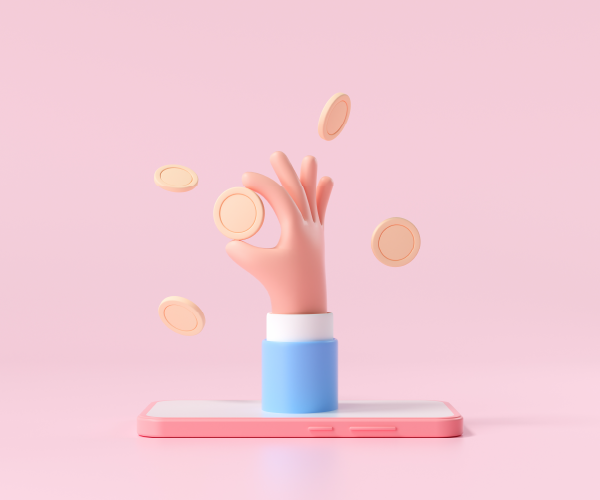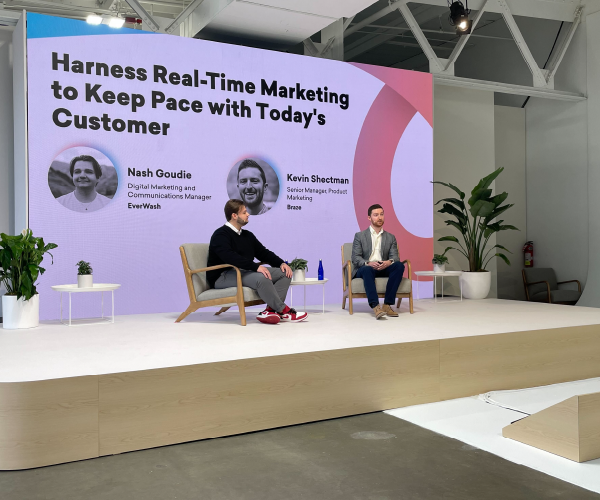
Getting Comfortable with Cashless
July 9, 2024
7 minute ReadOpting to go cashless really does change things, but maybe not quite how you think.
Seven bills were in; just a few more to go. Then the eighth one got stuck. The line was starting to build up behind the customer, but with $8 already in the dispenser, driving away empty-handed — and in a still-dirty car — wasn’t an option.
After wrestling the offending bill out of the acceptor, further attempts to insert it were unsuccessful. Upside-down, right-side up, smoothing the corners, nothing worked. The line was now out to the highway.
This transaction was holding up everyone trying to get through the car wash on this bright and busy Saturday afternoon. And, it wasn’t an uncommon problem. At Valet Car Wash in Ontario this type of situation was becoming a regular occurrence. “We were having all kinds of problems with the pay stations with cash handling,” said Mike Black, owner of Valet Car Wash. “It only takes one customer to get them jammed up.”
When Bank of Canada replaced the nation’s traditional cotton-and-paper bank notes with currency made from a synthetic polymer, it made the problem even worse. “The plastic money doesn’t work well in the acceptors or dispensers. The bills tend to stick,” Black said.
On top of that, the bill acceptors were continually breaking and Valet was spending a fortune to fix them. “It was a ridiculous amount of money,” Black said.
Equipment costs were raising red flags at Flagstop Car Wash, as well. “It was almost costing more to accept cash than what we were bringing in,” said Jamie Nester, president and CEO, because of the expenses related to maintenance of the pay stations. They had 25 pay stations when they decided to go cashless and a couple sites were already at 90% credit, he said. “So if a bill dispenser had to be replaced, that cost was almost as much as the site brought in.”
Emptying the machines and managing that cash was a lengthy process too — from paying accountants to sort out why a till was $10 off to handling bank deposits at the end of the night. At Camel Express Car Wash, it was costing almost $4,000 a month just to manage the cash, said Tyler Slaughter, chief operating officer, even though less than 6% of their revenue was cash.
Having a big box of cash sitting around can lead to crimes of opportunity, as well — and the pay stations and self-serve bays were targets. “Anyone that has pay stations will have people breaking in,” Black said.
Cashless not only seemed like the best option, it seemed like the only option for these car washes. What’s the use of having equipment that can handle 400 cars a day if the point-of-sale system can only handle 200? Or bringing in $100, only to spend $120 to manage the money?
The Transition
For Valet, the transition was a simple one. “We sent out an email to customers and just removed the acceptors, then changed the screen so the option wasn’t there,” Black said. Shortly after, they went cashless in the self-serve bays, too. That was six years ago.
It isn’t quite that smooth at every car wash, though. In September 2021 when Camel Express made the transition, they had a large resistance beforehand, Slaughter said. The resistance was from the team — the leadership — because they had some concerns about how it would go over with the customers.
To ease the customer transition, Camel incorporated a text program where anybody who wanted to pay with cash, but couldn’t because of the new cashless system, could sign up to receive a text for a free wash. They offered this the entire first month they went cashless. It ended up not being disruptive, though, for the most part. “Between our four washes, maybe one or two customers a day tried to pay with cash,” Slaughter said. “You just can’t go out in the 21st century without a debit or credit card.”
There was an unexpected benefit to going cashless, as well. They had a spike in customers signing up for membership plans. Previously, retail customers who would pull out a $10 bill for a wash didn’t present much of an opportunity for engagement. But, when Camel went cashless, it opened up a surprising door with these customers — as there was now engagement. On more than one occasion, the attendant would explain the cashless system and concurrently share some details about the subscription programs, then ask for a credit card for the wash — and the customer would decide to purchase a membership, instead.
“The first month we went cashless we had about a 17% increase in our memberships,” Slaughter said. “Since then, it’s been up between 3-5% month over month over what it was last year.”
Does It Really Change Things?
Going cashless really does change things, but maybe not quite how you think. “It removes a lot of the negatives,” Black said, summing up what it meant for them. The perks are also tangible.
For starters, since Valet went cashless, they haven’t had any vandalism with their pay stations. The same for Camel, which had a $25,000 reduction in theft across their 400 sites after going cashless.
For Valet, Camel and Flagstop, going cashless has also meant saving money on the costs of purchasing and repairing cash handling machines, reducing time spent by employees balancing tills and handling deposits, decreasing human errors and lowering theft. As Black put it, “That’s a lot of cookies in the cookie jar. The people I thought would never take a dime were the ones that were stealing cash in the pay stations.” Savings in insurance may be possible too, as insurance on cash handling and employee theft is built into your premiums, he said.
The bottom line is another tangible aspect that car washes look at when assessing their decision to go cashless. Slaughter said that Camel has seen zero decreases in the bottom line and their growth trajectory is still right up where it was previously: up 3-17% year-over-year from the previous trailing 12 months.
At Flagstop, Nester said they are finding it easier to sell club memberships as customers are already pulling out their credit cards. Plus, they’ve seen an increase in the average ticket price.
“Car wash operators that have gone cashless with Nayax have seen revenue increases of 20-30%,” said Carly Furman, country manager at Nayax LLC, a global fintech company that got its start as cashless payment, IoT service and management solution provider for unattended retail.
“As large operators begin to take the plunge in going cashless, they’ve been pleased with the results and don’t plan on looking back,” said Brian Garavaglia, director of product management for DRB, which offers cashless payment systems for both express tunnel and in-bay automatic washes.” “Those who have gone cashless report seeing smoother operations, reduced operating expenses and no negative implications on revenue.”
Black said Valet’s bottom line has increased tremendously, even seeing a 25% increase in the self-serve bays. But, more importantly, he looks at it as a competitive advantage. “On the revenue side, time is money. When you are taking cash, it slows down the process incredibly,” Black said. “I think going cashless has given me competitive advantage with speed and throughput.”
Survey Stats Pointing Toward Digital
In a survey released by Visa, Digital Transformation of SMBs: The Future of Commerce, the results point to a future where consumers — and businesses — are increasingly comfortable with digital payment options and have the tendency to spend more when not paying with cash.
• 65% of small and medium businesses (SMBs) agree that customers spend more when they use cards versus cash.
• SMBs surveyed said that it takes almost three times as much time to process nondigital payments compared to digital payments.
• 66% of consumers surveyed can imagine a future in which only digital payments will be used.
• On average, SMBs reported an 8% increase in revenue after accepting digital payments. Two-thirds of SMBs said customers spend more when using card versus cash. Half said sales increased after they began to accept digital payments – by an overall average of 8%*.
*Based on survey participants who reported either specific increase or no impact in sales volume after accepting digital payments. No participant reported decrease in sales volume.
Digital Tipping
After thieves tore their safe out of the ground to get the cash inside — twice! — Carnation Auto Spa in Dallas, Texas, decided it was time to go cashless. But taking this step meant no more cash tips, which could potentially adversely affect their employees’ income and their satisfaction levels.
So, they looked into digital tipping options and decided to test out Grazzy at all 21 car wash locations — and saw immediate results. “This digital tip option drove a jump of 53% in average daily tips for Carnation employees,” said Carnation CEO Drew Shepard.
Grazzy uses text and QR codes to direct customers to the tipping platform, where tip amounts can be selected for specific employees or teams and the money is transferred directly to employee-connected bank accounts.
“We’ve been using Grazzy for nearly 11 months, and the employees are extremely happy with the amount of money they are making through it. Plus, the platform keeps track of who is receiving tips and when, which has helped us identify tipping trends and employees who are going above and beyond,” Shepard said. “Plus, Grazzy has helped eliminate the operational risk of carrying cash.
In-Car Payment Options
Studies are reflecting increasing interest with in-vehicle payment options,
A 2023 study conducted by TechInsights reveals that 56% of drivers globally rank in-car payments as a top priority when it comes to connected car service features. Roughly 60% of drivers could see themselves using in-vehicle payments for washing and toll services, according to a 2022 study by GfK.
WashTec and ryd are already giving it a whirl in Europe and have collaborated with automobile manufacturers to enable drivers to pay for car washes directly from an in-car system.








